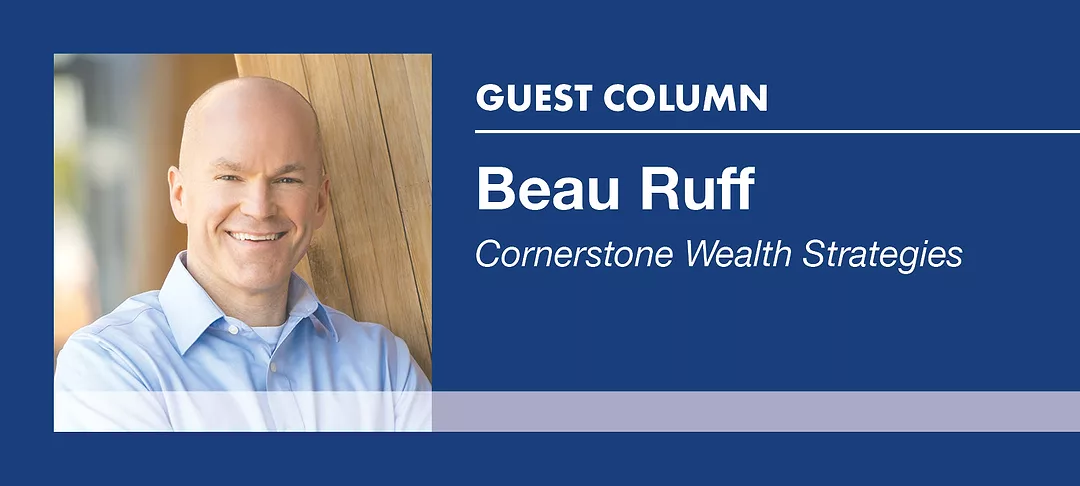
Home » The donor-advised fund’s many benefits are worth exploring
The donor-advised fund’s many benefits are worth exploring

August 14, 2020
Donor-advised funds have gained in popularity in recent years.
They provide an easy way to facilitate charitable giving; they can increase tax savings; and they can be creatively employed in estate plans to encourage philanthropy for the family and act as a substitute for a private foundation.
First, what is a donor-advised fund?
It’s as structured as a 501(c)(3) charitable organization. It acts, in part, like a holding spot for your money.
And you, the advisor, decide when, to what organization and how much to later give to another 501(c)(3) organization.
The key points here are several.
The gift to the fund is itself a charitable donation where the donor might then be able to claim a charitable deduction. Then, the donor maintains flexibility for the ultimate use and disposition of the funds. Finally, to qualify for distribution from the fund, the recipient must be a qualified charitable organization.
Second, the fund can increase tax savings.
Since the Tax Cuts and Jobs Act of 2017, the standard deduction has doubled. In effect, this had made it hard for the average person to receive any benefit for charitable deductions.
Why? For 2020, the standard deduction for a married couple is $24,800. To achieve a charitable deduction, the taxpayer must itemize deductions greater than the standard deduction.
A donor-advised fund has a potential solution here.
Let’s assume that a person gave $12,000 a year to church (qualified public charity). Instead of giving $12,000 in year 1 and year 2 and year 3, the same person could give $36,000 to a donor-advised fund and claim a charitable deduction for the entire $36,000 in year 1.
Then, the donor-advisor could distribute $12,000 to the church in each of years 1, 2 and 3. The result is the church receives the same donation, but the donor has now given enough to qualify for a charitable deduction by itemizing beyond the standard deduction.
The donor need not use cash but can use appreciated assets like land, stocks, houses or other property.
This type of gift is often preferable because the donor then need not recognize any gain on the asset transferred. As an example, if you own property that has gone up in value (like land, rental property, stocks, or the like), you could either sell the property and gift the money or you can gift the asset itself.
If you sell the asset, then you will need to pay capital gains on the difference between the tax basis and the sale price. If instead you gift the asset, you will not need to pay any income taxes and you would still be able to deduct the full fair market value of the asset contributed.
This is why it is often preferable to gift appreciated assets to charities like donor-advised fund.
Third, the donor-advised fund can add some interesting solutions to your estate plan.
Of course, gifts to charities in the estate plan reduce the taxable estate and the applicable estate tax (if any). But, it also can become a mechanism to instill cooperation and charitable intent among your heirs.
For example, perhaps you are considering giving 10% of your estate to a charity of your choice at death (call it, State University).
Instead of giving to State University, you might instead leave the 10% to the donor-advised fund at your death and name your child or children as the fund advisor or advisors.
You might tell your children (while living) that you have always appreciated State University, but the ultimate decision for charitable distributions are up to them. This would allow you to gain a charitable deduction on the estate, direct that the children work together to engage in philanthropy, and ultimately decide on when, whom, and how much to direct to charitable organizations.
One reality is that often a charity of choice changes.
That is, the causes or organizations that were important to you 20 years ago may not be the same that are important to you today. Rather than directing a gift to a specific charity, the donor-advised fund allows the determination of the actual charitable recipient to be determined at a later date.
This provides flexibility to the plan.
What happens while the money is sitting in the fund?
It would typically be invested in a diversified portfolio consistent with state prudent investor Rules (discussed in previous articles). This means that the assets can continue to grow even after the donation which can potentially extend the timeframe and amount of giving.
In short, the donor-advised fund has many great benefits worth exploring. Talk to your financial professional to see if its right for you.
Beau Ruff, a licensed attorney, is the director of planning at Cornerstone Wealth Strategies, a full-service independent investment management and financial planning firm in Kennewick.
Local News Charitable Giving & Nonprofits
KEYWORDS august 2020





